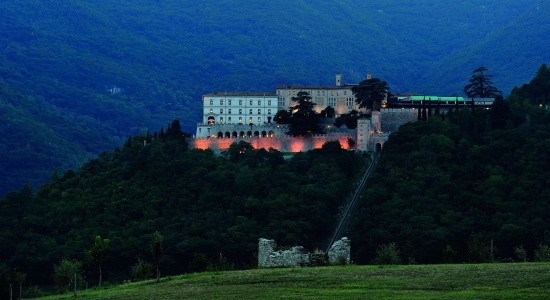Statistical methods for population-based cancer survival analysis - June 2025
As part of the Summer School on Modern Methods in Biostatistics and Epidemiology, a highly experienced faculty will present an intensive 1-week course on the principles, methods and application of statistical methods in population-based cancer survival analysis.

The course will cover central concepts, such as how to estimate and model relative/net survival, as well as recent methodological developments including flexible parametric models, proportion of expected life lost, cure models, and estimating crude probabilities of death. Comparison of alternative methodological approaches (e.g., to estimating relative survival and to modelling relative survival) will will be a focus of the course and participants will get the opportunity to apply and contrast a range of methods to real data. The course will consist primarily of lectures and hands-on computing sessions with a focus on individual instruction and discussion. Click here for further details of the course content.
Our goal is to provide each participant with individual instruction. A large amount of time will be devoted to exercise sessions where 5 faculty members will be available to work with participants individually or in small groups. We will provide an extensive set of exercises with fully-worked solutions but the exercise sessions will also provide an opportunity for participants to discuss their own research projects with the faculty (and with each other). Participants are welcome to bring a laptop with their own data; we are happy to discuss how such data can be analysed. Our goal is that, after completing the course, participants will return to their home institution with both the theoretical knowledge, practical skills, and computing code to perform survival analyses.
We have chosen the venue since we believe a residential course in a pleasant environment provides much more than a "nine to five" course. The faculty will stay at the course venue and look forward to discussions not just during the course but during breakfast, dinner, and after dinner.
Faculty
Professor Paul Lambert
Professor Paul Dickman
Professor Mark Rutherford
Associate Professor Therese Andersson
Assistant Professor Elisavet (Betty) Syriopoulou
[Click here for faculty biographies]
Date and Location
The course will next be held 2-7 June 2025 at Hotel Castel Brando, near Treviso in the Veneto region of Italy. Please visit the hotel web site for more information and photographs of the venue.
Who should attend
Epidemiologists, statisticians, physicians and oncologists, public health specialists and others with an interest in methods for studying cancer patient survival. The course is focussed on analysis of data collected by population-based cancer registries, but we welcome participants with interests in other areas. The methods we teach (e.g., competing risks, modelling (especially flexible parametric modelling), regression standardisation etc.) can be applied to any area. [Further information]
Course fee and registration
See the home page of the Summer School on Modern Methods in Biostatistics and Epidemiology for information on the course fee, accommodation, and registration.
Computing
A significant amount of time will be allocated to hands-on computing sessions where participants will have the opportunity to apply the methods described in the course to real data. Stata version 18 will be the primary course software and a time-limited licence will be provided. Faculty members have extensive experience in using Stata, and have developed Stata commands for survival analysis. We will provide extensive exercises with worked solutions as well as Stata do files that participants can use as templates for analying their own data. Faculty members also have experience applying these methods in other software, such as SAS and R, and are willing to assist participants who wish to work with these packages but not all of the methods described in the course can be applied in other packages and we do not have the same level of expertise in other packages as we do in Stata. The computing sessions are also intended as a forum for participants to talk to the faculty about aspects of particular interest to them; five faculty members will be in attendance during each session which will make individual instruction possible. The course is designed to be accessible to participants without previous experience of using Stata.
Participants are encouraged to bring a laptop to the course. Participants without administrator rights to the laptop are strongly encouraged to contact the faculty in advance of the course to coordinate the installation of software prior to the course.
Course certificate and assessment
Each participant will receive a certificate of attendance. There is no formal examination. The course is not an official university course and successful completion of the course does not automatically entitle academic credits although registered students may be able to apply to their university for formal credit.
Course language
The course language will be English. All instruction and course materials will be in English.
Course organiser
The course is organised by the Summer School on Modern Methods in Biostatistics and Epidemiology.
